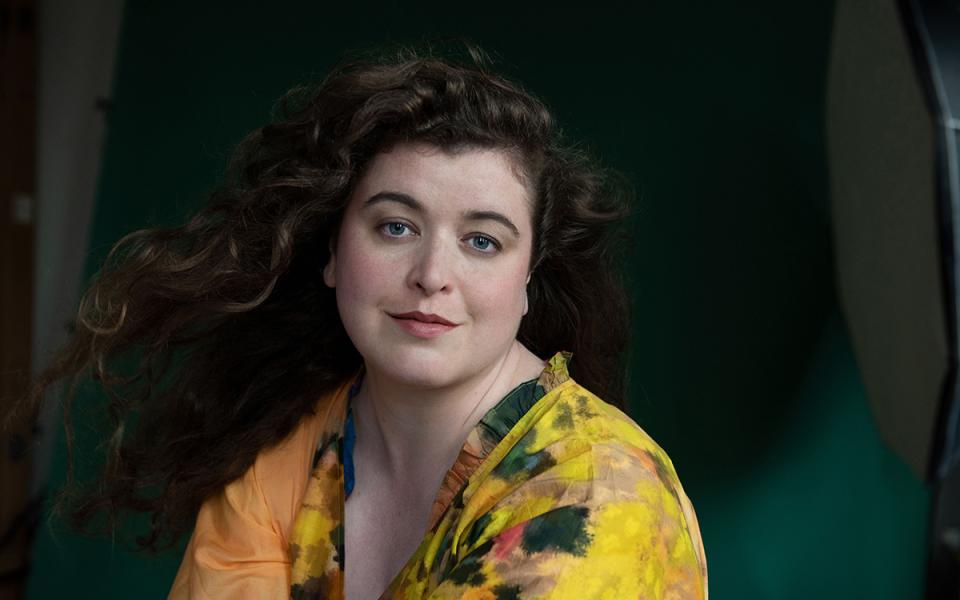Three Choirs Festival 2025: meet Jess Dandy

In a large choral work like Mendelssohn’s Elijah, you’re part of a rich musical structure featuring the orchestra, chorus and other solo voices. The contralto solos in Elijah offer differing emotional landscapes. How do you inhabit those contrasting moods, and what do you find most rewarding about singing this role?
Mendelssohn’s emotional acuity makes inhabiting contrasting moods almost involuntary. The contralto oscillates between the role of Queen Jezebel and one of the Angels, polarised mouthpieces for Elijah’s fate. Whilst Jezebel threatens to kill the prophet following his condemnation of her worship of the ‘false god’ Baal, the Angel brings a message of divine solace and abundance: ‘for He shall give thee thy heart’s desire’. I find it very rewarding to embody this antagonistic pair within one evening: from venom and vitriol, spitting slogans of hate in call and response with a people ready to be riled up; to the unmistakable tenderness of Mendelssohn’s harmonic language as the Angel offers hymns which quietly and yet insistently open you to your own heart.
Since its premiere in 1846, Elijah has remained a cornerstone of the choral repertoire. Why do you think the piece has such lasting appeal for both audiences and performers?
Elijah is satisfyingly Janus-faced. It reassures as a love letter to Bach and Handel oratorios, but it is also the twinkle in the eye of Romanticism with its ferocious musical depictions of storms, earthquakes, and bloodlust. The musical terrain is incredibly diverse: textures range from the exquisite unaccompanied trio for three female voices, ‘Lift thine eyes’, to huge eight-part choruses with full symphony orchestra. Re-telling an ancient story which champions the ‘still small voice’ in the midst of megaphoned ‘earthquakes’ of perceived power, the quiet eloquence of a person who truly listens to what needs to be done and speaks truth to ‘kings’ is, regardless of your belief system, a rich narrative to inherit; a story which, rightly or wrongly, always is.
Have you performed at the Three Choirs Festival before? What are you most looking forward to about this concert?
Over the past twelve years, I have performed at the Three Choirs Festival several times, initially as a choral singer and more recently as a soloist. The conductor of Elijah’s 1846 premiere at Birmingham Town Hall is sadly indisposed (Mendelssohn), but I hear the second resort in the form of Geraint Bowen is rather good. On a more serious note, I am most looking forward to singing again in Hereford Cathedral: lending my voice to centuries of resonance in praise of something beyond ourselves is always an experience I find deeply life affirming.
What three things are you listening to at the moment?
Epic of the Earth by Edith Hall (audiobook) – an unapologetic and meticulous reading of Homer’s Iliad as a foundational text for anthropocentrism and environmental exploitation with insidious consequences we continue to perpetuate.
Sunwise (music album) – the ‘magic(k)al’ third album of Scottish composer and small pipes player, Brìghde Chaimbeul, which reaches deep into textural drones and experimental techniques in loving tension with tradition and folklore; listen, put down your burdens, and let her completely dismantle your sense of time.
Messiaen Apparition de l’Eglise éternelle – played by Olivier Latry at Notre Dame de Paris: palindromic, prismatic, a kind of cosmic compression, you feel this music in your toes, in your atoms. Over nine and a half minutes, the eye of infinity slowly opens and closes.


